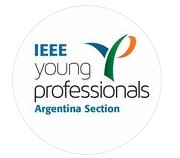Noticias y Actividades
Publicado el 22/11/2005
 CONFERENCIA "DESIGN CHALLENGES OF NEXT-GENERATION WIRELESS COMMUNICATION SOCS"
CONFERENCIA "DESIGN CHALLENGES OF NEXT-GENERATION WIRELESS COMMUNICATION SOCS"
Prof. Teresa H. Meng / Jueves 24 de Noviembre
CONFERENCIA "DESIGN CHALLENGES OF NEXT-GENERATION WIRELESS COMMUNICATION SOCS"
El Capítulo Argentino de la IEEE SPS Signal Processing Society, con el auspicio del Programa de Conferencistas Distinguidos de
la SPS, invita a la Conferencia de la Profesora Teresa H. Meng, que se realizará en el Auditorio de IEEE-CICOMRA, Avda.
Córdoba 744, 1er. Piso 'B', Buenos Aires el Jueves 24 de Noviembre a partir de las 18:00.
La Conferencia se dictará en idioma Inglés y el acceso es sin cargo.
Agradeceremos inscripción previa vía e-mail a sec.argentina@ieee.org indicando Ref: Meng
Temario
"Design Challenges of Next-Generation Wireless Communication SoCs"
The availability of unlicensed bands and low-cost CMOS technology have dramatically changed the landscape of broadband wireless
communication in the past few years. The newly established high-performance, low-cost wireless LAN technology has the potential to
provide wide-area wireless connectivity at speeds orders of magnitude higher than the current system and a fraction of its cost. To
accommodate the ever increasing data rates, communication SoC (system-on-chip) design is no longer merely a circuit integration
problem. The implementation of high-throughput wireless communication SoCs with a power constraint requires a new design strategy
for the embedded analog components. One solution is to exploit the computational capability of digital circuitry to continuously
calibrate the mixed-signal and analog circuits to compensate for their ever more tenuous realization as technology is scaled and
supply voltages are reduced. In this talk, state-of-the-art developments of the wireless LAN technology and its design challenges
will be discussed, along with the opportunities for future innovations.
Teresa H. Meng
Teresa H. Meng is the "Reid Weaver Dennis Professor" of Electrical Engineering at Stanford University. Her research
activities during the first 10 years at Stanford included low-power circuit and system design, video signal processing, and wireless
communications. She has received many awards and honors for her research work at Stanford: an NSF Presidential Young Investigator
Award, an ONR Young Investigator Award, an IBM Faculty Development Award, a Best Paper Award and a Distinguished Lecturer Award from
the IEEE Signal Processing Society, the Eli Jury Award from U.C. Berkeley, and awards from AT&T, Okawa Foundation and other
industry and academic organizations.
In 1999, Dr. Meng took leave from Stanford and founded Atheros Communications, Inc., which provides leading wireless system solutions
for transparent connections of data, video, and voice communications. As a result of this effort, Dr. Meng was named one of the Top 10
Entrepreneurs in 2001 by Red Herring, Innovator of the Year in 2002 by MIT Sloan School eBA, the CIO 20/20 Vision Award in 2002, and the
DEMO@15 World-Class Innovator Award in 2005. She returned to Stanford in 2000 to continue her research and teaching at the University.
Dr. Meng's current research interests focus on circuit optimization, neural signal processing, and computation architectures for future
scaled CMOS technology. She has given plenary talks at major conferences in the areas of signal processing and wireless communications.
She is the author of one book, several book chapters, and over 200 technical articles in journals and conferences. Dr. Meng is a Fellow
of the IEEE. She received her Ph.D. in EECS from the University of California at Berkeley in 1988.
Destacados











